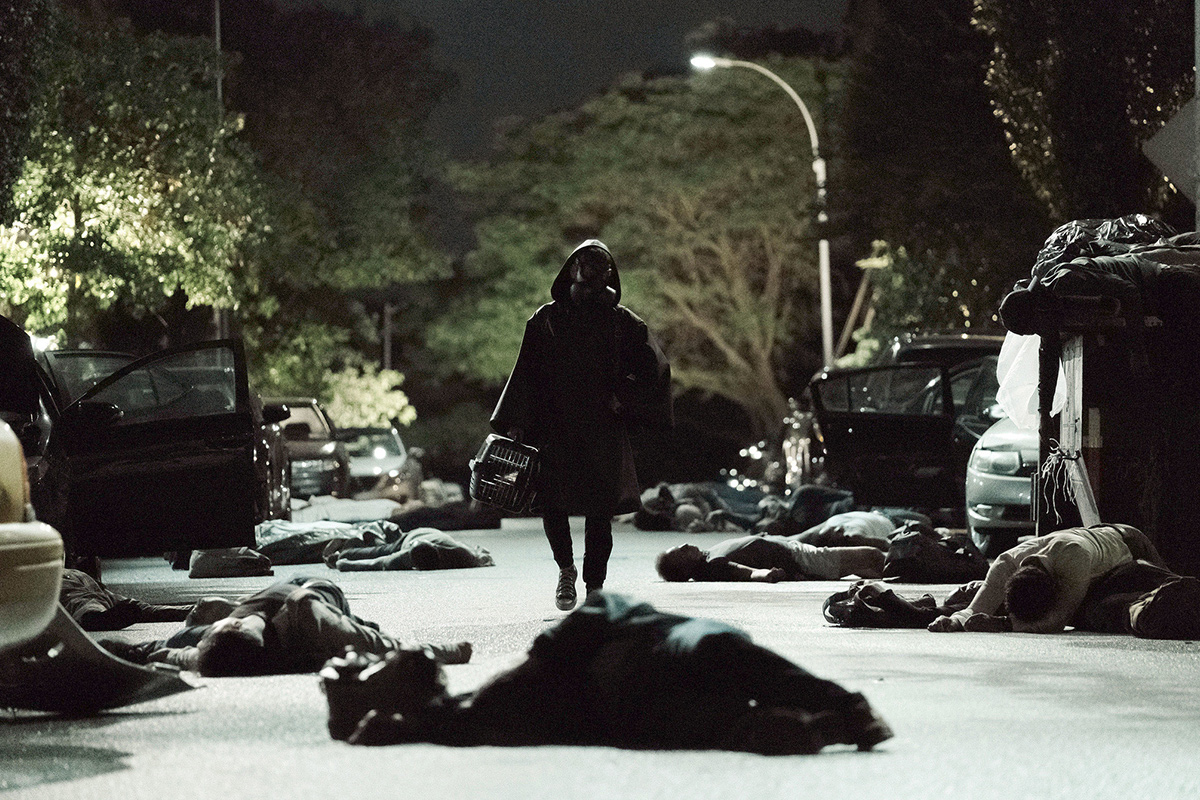I never thought I would see the day when “Y: The Last Man” was adapted for TV. But the comic book I started reading in middle school, which was supposed to be adapted a decade ago, is finally making the leap to the small screen September 13 on FX on Hulu.
The story tackles issues like misogyny, gender identity, pandemics, the apocalypse, the Israeli military and how to wrangle a monkey who’s trying to throw poop at you. All of these issues have become increasingly relevant over the last year (except maybe the last one now that Trump is out of office). So maybe this show is coming out at the perfect time, or maybe the worst time. It’s a lot to take in, but let’s focus on the basics of what you need to know about this story and its Jewish connections.
What’s it about?
Here’s the elevator pitch: Every mammal with a Y chromosome dies in one mass hemorrhagic plague that takes place over a matter of minutes — except for one dude, named Yorick, and his monkey. The two end up on a worldwide road trip to figure out what happened and how to save the human race. They are joined by a secret agent and a geneticist, who help them fight their way through hordes of motorcycle riding Amazons, ninjas, community theater actors, domestic terrorists and the IDF.
Wait… how does the IDF get involved in all of this?
That’s a good question. Bottom line is Israel is one of the few countries where women are conscripted into service and have a significant presence throughout branches of the military. So in a world where most fighter pilots are dead, having anyone who can fly an F-16 is a huge strategic advantage. In the comic, the new head of the IDF, a woman known as Alter, decides that what Israel really needs to secure its nation is to kidnap the titular “Last Man.”
But I thought that the whole reason Israel was in this is that they became a superpower?
Yeah, and here’s where things get sticky. Alter as a character serves as the main antagonist; she takes a squad of soldiers to America to hunt and kidnap Yorick, and both her squad and the reader is left to ask why. Strategically it doesn’t make a whole lot of sense, and Alter is never really given a clear motivation. At different points, its pinned on everything from she’s traumatized by the horrors of the intifadas, or she almost kissed a Palestinian boy in camp then didn’t, or she’s worried about the infighting among Israelis after the apocalypse, or her sister was runover by a bulldozer protesting settlements, or she’s suicidal.
Ummm… what is the deal here?
So yeah, Alter is not written well. However, reading this comic again, after so many years, the problems with Alter aren’t necessarily about her character specifically. The author, Brian K. Vaughan, is a truly talented and deeply insightful author. However, he started writing this comic in his mid-20s and it shows (no offense to anyone in their mid-20s). He’s a smart guy who loves researching, so he’s very good at presenting facts, and with Alter, he really tries to flesh out the character. But you can tell his research is mostly academic. He doesn’t get the voice, or soul, of the Jewish experience in this series, and so his attempts to expand on the character end up only entangling her in a hodgepodge of traumas.
It’s not just her though. There are a lot of minority characters in this series, and they all talk pretty much the same. None of their cultural/racial/queer identities have any impact on who they are or how they speak. It’s a rookie mistake that was made by a rookie author.
You’re not selling this comic well. I was told it was good?
It is! There’s a lot of great things about this comic, and it absolutely changed the graphic novel landscape. It’s witty, it’s moving, it’s thought provoking, it’s got real relationships, and it seriously questions patriarchal structures in society. Most of the characters are really well fleshed out, and the world is meticulously crafted.
Why they gotta do the Jews so dirty though?
Buddy, I ask myself that question every day. The truth is that Vaughan was actively trying to give Jews and the Jewish State real, thoughtful representation. Alter, for all her messiness, is not the only Jew in this series. There are other Israelis with different opinions on policy, and Vaughan consistently reminds the reader that Alter is an individual acting on her own. There are also two Jewish geneticists who make brief appearances, though their Jewishness only comes up as Alter is threatening them, and they use it to try to get out of a bad situation.
Vaughan also falls into the stereotype of Israeli Jews as being badass soldiers, and American Jews as being nerdy doctors. It’s not great. But I’m much less upset at art which tries for nuance and fails, than art which just falls back on the tropes out of pure laziness.
I thought you were supposed to explain things to me, not make it more confusing.
This is what you get for asking a Jewish person to explain things to you.
I haven’t seen the show yet, and we’ve only got one real trailer so far. So I have no idea how they’re going to handle the Israeli and Jewish elements. I know that they have an Israeli woman playing Alter (Rona-Lee Shimon). They also have a Jewish guy (Ben Schnetzer) playing Yorick (though the character is definitively Catholic).
Knowing how television treats its Jewish characters, I’m not really expecting much better. I’ve been burned before. I imagine, though, that no one is going to be really happy with her portrayal, considering this is on television and the producers are likely going to try to walk the tight rope rather than do anything which can be construed as divisive.
I can say that the story is a perfect setup for people to ask very important questions, and I think there are going to be a lot of things to talk about when it comes to this series. So I’m going in with an open heart and open eyes.
But it’s OK if that’s not your thing. Instead, you can watch a wholesome television show about a Jewish elephant who goes to a magical sleepaway camp called “Summer Camp Island.” Because sometimes we can have nice things.



